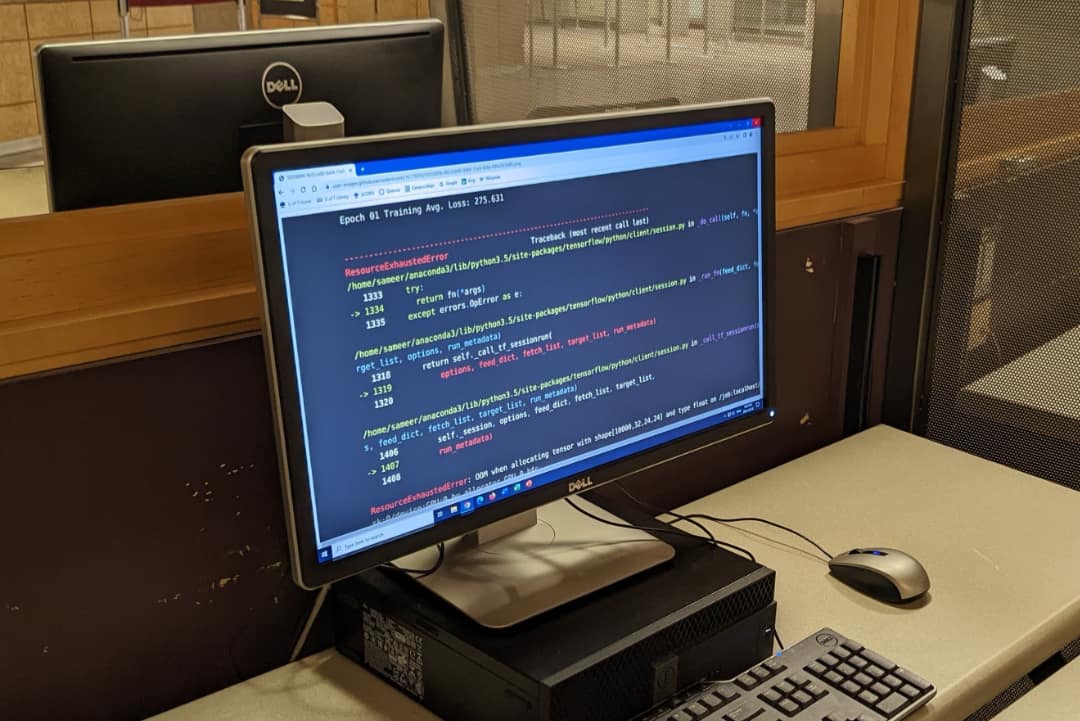In the digital age, there is a world of possibility available to us with artificial intelligence (AI). Every day, whether we ask Siri to play a song, huddle around a laptop to use ChatGPT with friends, or scroll through Instagram for hours, we relearn the prevalence of AI.
For U of T researchers, the reminder comes in the form of a potential cancer treatment.
Insilico Medicine — a multinational biotechnology company endeavouring to improve health care by using AI — partnered with University of Toronto’s Acceleration Consortium, led by Alán Aspuru-Guzik. The Consortium works to create AI labs to accelerate the design and development of research.
In less than a month, researchers in this partnership have designed a potential treatment for hepatocellular carcinoma (HCC), an aggressive and common form of liver cancer that claims approximately 700,000 lives each year.
The study, published in January 2023 in the journal Chemical Science, is the first to use AlphaFold — an AI-powered protein structure database — in an end-to-end AI drug discovery platform called Pharma.AI. This platform is equipped with powerful biocomputational and generative chemistry engines that allow the tool to try thousands of combinations for potential drugs and pathways.
These tools scanned for possible targets for HCC treatments by identifying the weak areas on proteins. One of these weak spots was a previously undiscovered treatment pathway, targeting an enzymatic protein named cyclin-dependent kinase 20 (CDK-20).
CDKs are fundamental proteins in the cell cycle, facilitating the growth and division of cells. As part of their function, these proteins mitigate the production of diseased or otherwise faulty cells, halting the cell cycle if there are any errors in the new or source cells.
But in carcinomas, cellular production still continues even though the cell is not fit to multiply. This is how tumours begin.
When CDK enzymes are targeted, the cell cycle cannot continue in the unhealthy cell. This slows the production of cancerous cells, with the hope of stopping it altogether.
After the identification of CDK as a key actor, research to create a molecule to inhibit the enzymes as part of cancer treatment began. The resulting drug has so far been tested on live cells and effectively slowed cancer growth. However, it will still need to go through clinical trials before it can be used.
Prior to the implementation of such tools, such research would have taken years and copious amounts of trial and error. But with AI, it was successful within a few weeks.
We have fantasized about the revolution AI would bring to healthcare: personalized care, more efficient solutions, increasingly accurate diagnoses, and more. With every step we take, every study we conduct, and every technological development, that fantasy becomes closer to reality.
The realm of possibilities is endless, and this study is only the beginning. A potential treatment today could be a cure tomorrow.
Cautious optimism
As we inch closer to potential treatments, however, we must remember the double-edged sword that is the pharmaceutical industry. High demand can cause exorbitant prices for medication and treatments necessary to live.
To claim that the pharmaceutical industry has even begun to overcome these issues would be foolish. Whether or not these issues can be overcome in the case of AI-driven cancer research remains to be seen. Perhaps we might see treatments become more widely accessible to all patients regardless of their socioeconomic status — or perhaps these developing treatments will only serve to help those who can afford them.


